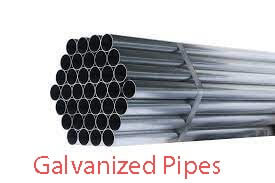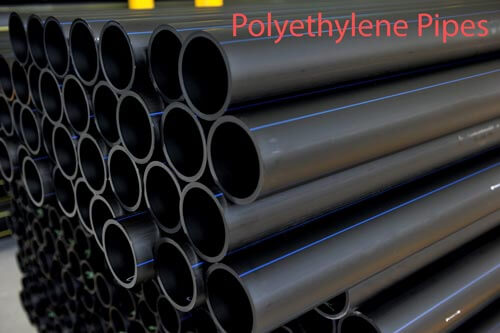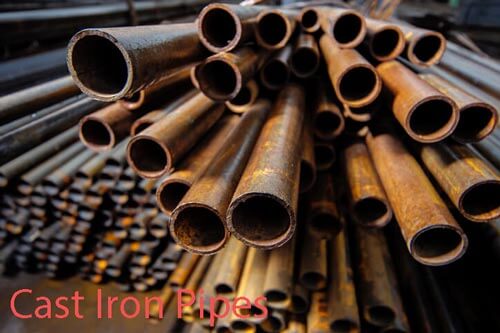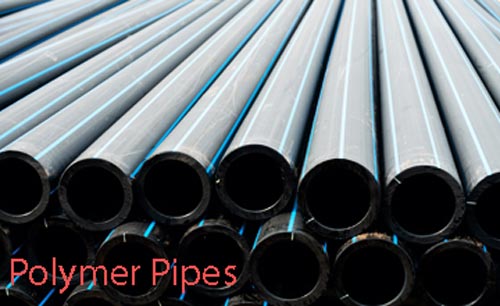Types of Agricultural Water Supply Pipes
When it comes to agricultural water supply pipes, it is important to understand that the quality of the pipe, along with its durability, plays a significant role in the efficient conveyance of water. The material of each pipe contributes to its specific characteristics, and various types of pipes, such as metal pipes, cast iron pipes, polyethylene pipes, and aluminum pipes, exhibit different structural features when it comes to water transportation. In this article, we aim to discuss the applications
and unique advantages of each type of agricultural water supply pipe.
Galvanized Pipes:
Galvanized pipes, also known as white iron pipes, are lightweight and shiny. They are commonly used in linear and in-line irrigation systems, as well as in center pivot irrigation systems. Galvanized steel pipes are suitable for irrigation purposes.

Polyethylene Pipes:
Polyethylene (PE) pipes are dark-colored and offer excellent resistance against fluid pressure. These pipes can be connected through thermal fusion welding or butt fusion. They have higher thickness and density and are resistant to ultraviolet radiation, chemical solutions, abrasion, and corrosion. They can withstand high weights and are commonly used in urban water distribution networks.

Polyethylene Irrigation Pipes:
Polyethylene irrigation pipes with a diameter of 10mm are used for transporting water in gardens and greenhouses using various irrigation methods such as drip, pressurized, rain, center pivot, liner, and roll line. They are available in lengths ranging from 100 to 400 meters. These pipes have screw fittings for easy connection.
Polyethylene Irrigation Pipes (16mm):
These pipes are highly resistant and durable against impact and heavy weights. They are flexible and easy to handle and transport. They prevent the growth of weeds and can be connected using flanges.
Polyethylene Irrigation Pipes (32mm):
These pipes are used as sub-main pipes in various agricultural water supply systems. They are suitable for both sprinkler and drip irrigation systems and can be easily installed. They offer higher resistance against impacts compared to the 16mm pipes and are considered simple to maintain and test.
Polyethylene Irrigation Pipes (50mm):
Standard 14427 covers these pipes, which are primarily used as secondary water pipes. They are used in complex irrigation systems and exhibit excellent resistance to wear, durability, and resistance against corrosion. They can be easily connected without any leakage and offer high durability and resilience. They have low hydraulic resistance, resulting in minimal maintenance and repair requirements.
Cast Iron Pipes:
Cast iron pipes are another type of agricultural water supply pipes that can be used in both flat and ball-end configurations. Flat-end pipes utilize special joints, while ball-end pipes are available in one-ball and two-ball models. These pipes are commonly made of lead and can be used for pipe connections. The different types of agricultural and building water supply pipes vary in material, application, and connection methods. It is highly recommended to purchase various types of agricultural water supply pipes from reputable online platforms. Flat-end pipes generally have higher durability and exhibit greater resistance to impact compared to ball-end pipes.

Polymer Pipes:
Polymer pipes, known for their versatility and ease of use, offer excellent performance against various microorganisms and sediment. They provide hygienic water supply and are known for their quality and easy installation. Polymer pipes, including polyethylene pipes, play a key role in various agricultural water supply systems. They are essential for preventing water wastage and can be used effectively for pressurized, underground, and surface irrigation. These pipes ensure high-speed water transfer.
In conclusion, in this article, we aimed to familiarize you with different types of agricultural water supply pipes. Each type of pipe has its own unique characteristics and applications. It is crucial to consider the durability, advantages, and price of each pipe when seeking to purchase high-quality pipes.
